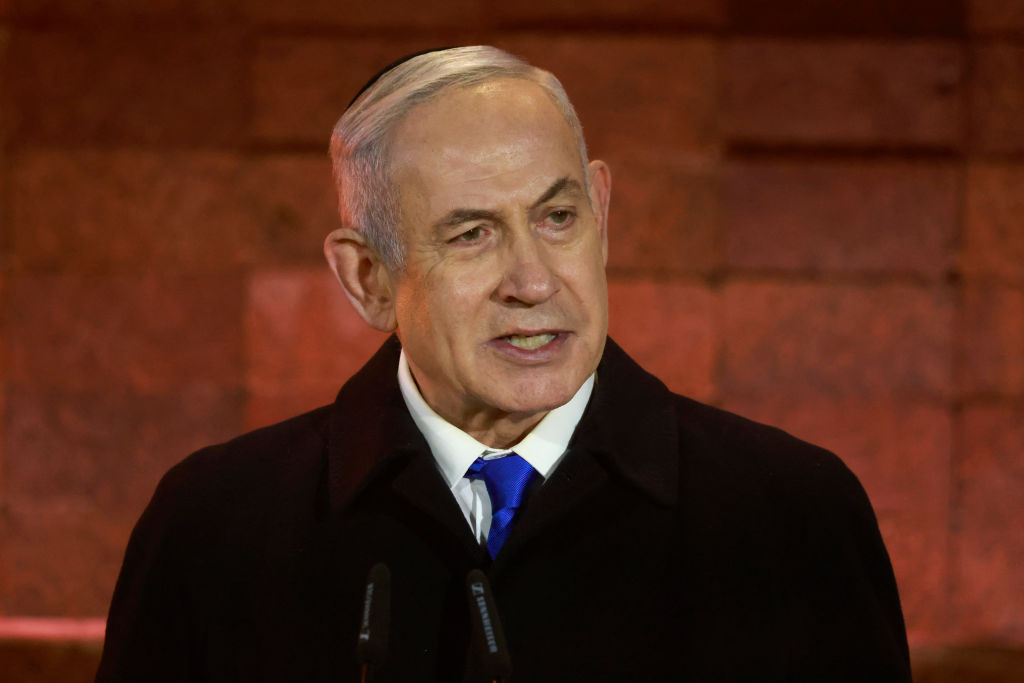A day after it seemed that a ceasefire deal between Hamas and Israel was all but dead, the terror group has issued a surprise statement announcing that it has accepted the deal offered by Egypt and Qatar. Optimism, though, would be premature at this point.
The deal accepted by Hamas is reportedly somewhat different to the one they had been considering in the last few days. It was offered by the mediators without first approving the terms with Israel, and may include conditions that Israel cannot accept. Israeli officials confirmed that they received Hamas’s response this evening, and that the terms of the deal are being looked at by the government.
If Netanyahu rejects this deal, he will have to prove that his reasons were good enough
Israeli prime minister Benjamin Netanyahu is under considerable public pressure to reach a deal that will secure the release of Israeli hostages. He has therefore agreed to make significant concessions, including in the number and nature of the prisoners Israel would release from prison and the length of a ceasefire. He may be required to make more concessions now. However, there are two issues that, if they are present in the current deal, would kill it dead in the water.
The first is a demand by Hamas for a permanent ceasefire. Allowing Hamas to keep control of Gaza and rebuild its military strength and influence poses an unacceptable risk for Israel. Nearly seven months into the war, Hamas still presents a major threat, which means that Israel cannot afford to stop fighting.
The second issue, which Hamas has demanded in the past, is giving the terrorist organization a free hand in choosing which prisoners will be released from prison without giving Israel veto rights. If this happens, Hamas could demand the release of dangerous arch-terrorist who would form the next generation of the group’s leadership.
A deal with terms that are more acceptable to Hamas is only one possible reason that the organization agreed to a deal after months of repeated rejections. If Israel rejects the deal, Hamas will point the finger at Israel as the sole reason that the war is continuing. Israel is facing immense global criticism and pressure, and Hamas hopes that Netanyahu rejecting the deal would lead to even greater pressure on Israel to succumb to a permanent truce, throwing Hamas a desperately needed lifeline.
Hamas’s leaders are possibly also alarmed by Israel’s recent move to start an invasion of Rafah. The southern city holds roughly 4,000 Hamas terrorists — by far the largest concentration of the group’s forces in the Strip. It therefore holds major strategic importance to Israel in their fight against them. However, they hope that as Israel considers the deal, an operation might be postponed.
After weeks of dithering, the Israeli Defense Forces was given the order to evacuate Palestinian civilians from parts of the city in preparation for a pending offensive. Significant forces have been massing by the border, ready to go.
The IDF has been moving roughly 100,000 civilians out of Rafah’s eastern neighborhoods. At this point Israel doesn’t intend to conquer the entire city but is planning to launch a slow and gradual operation, which could be halted at any point in the event a ceasefire deal is reached. This leaves Hamas with the possibility of negotiating while the fighting goes on.
As part of the offensive, Israel plans to take control of the Rafah crossing, situated on the border with Egypt. This terrifies Hamas. It would allow Israel to stop the smuggling of weapons from Egyptian territory to Hamas. It could also prevent Hamas’s leaders from escaping into Egypt.
All eyes are on Netanyahu. If he rejects this deal, he will have to prove that his reasons were good enough. Otherwise, it would likely trigger widespread condemnation from the Israeli public, the international community and from Israel’s allies. Israel’s relations with Egypt and Saudi Arabia, both of immense importance, also hang in the balance.
Hamas has made its move, and it’s a smart one: it has now set the board for Israel to damage its own reputation further. As Israel weighs up its response, it faces the tricky task of balancing national security needs with domestic and international pressure.
This article was originally published on The Spectator’s UK website.


























Leave a Reply